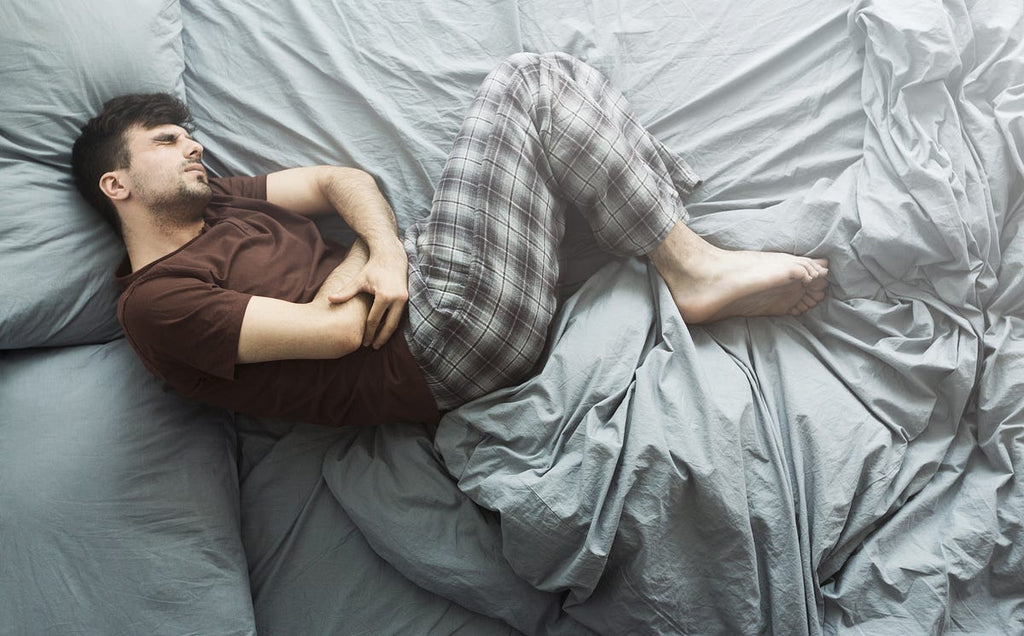
Hormones play a crucial role in regulating various physiological and psychological processes in the human body. Traditionally, the concept of hormonal cycles has been associated with women, particularly in the context of the menstrual cycle. However, recent research suggests that hormonal fluctuations may also affect men. In this blog post, we will delve into the intriguing question: Do guys go through hormonal cycles?
Understanding Hormonal Cycles:
-
Hormones in Men: Men's hormonal systems are often simplified to testosterone, the primary male sex hormone. While testosterone is indeed a major player, men also experience fluctuations in other hormones, including cortisol and estrogen. These hormones contribute to the complex interplay of physiological and psychological processes in men.
-
Testosterone Fluctuations: Testosterone levels in men can vary throughout the day and across the lifespan. Research indicates that testosterone levels tend to be higher in the morning and may fluctuate in response to factors such as stress, sleep, and physical activity.
a. Morning Peaks: Testosterone levels typically peak in the early morning, influencing energy levels, mood, and cognitive function. This daily variation suggests a hormonal rhythm that could be considered a form of a "daily cycle" for men.
b. Stress Response: Stress can also impact testosterone levels. The body's response to stress involves the release of cortisol, which can, in turn, affect testosterone production. Chronic stress may lead to long-term hormonal imbalances in men.
-
Age-Related Hormonal Changes: Just as women experience hormonal changes with age, men also undergo a process known as andropause or male menopause. This is characterized by a gradual decline in testosterone levels, typically starting in middle age. Symptoms may include fatigue, mood swings, and a decrease in libido.
a. Symptoms of Andropause: Understanding the symptoms of andropause is crucial. While not all men will experience severe symptoms, some may notice changes in their energy levels, muscle mass, and emotional well-being.
b. Psychological Impact: Hormonal fluctuations in men can have a significant impact on mental health. Changes in testosterone levels may contribute to mood swings, irritability, and even conditions like depression.
-
External Factors Influencing Hormones: Various external factors can influence hormonal balance in men. Diet, exercise, sleep patterns, and exposure to environmental toxins are among the external elements that can impact hormone levels.
a. Exercise and Hormones: Regular physical activity has been linked to higher testosterone levels. Conversely, a sedentary lifestyle may contribute to hormonal imbalances. Understanding the role of exercise in hormonal health is essential for men's overall well-being.
b. Diet and Nutrition: Nutrition plays a vital role in hormonal regulation. Certain nutrients, such as zinc and vitamin D, are crucial for testosterone production. A well-balanced diet contributes not only to physical health but also to hormonal balance.
c. Sleep and Hormones: Quality sleep is essential for hormone regulation. Sleep deprivation can disrupt the body's hormonal balance, affecting testosterone and cortisol levels. Establishing healthy sleep patterns is fundamental for maintaining hormonal health in men.
-
The Emotional Rollercoaster: Hormonal fluctuations are not limited to physical changes; they also impact emotional well-being. Men may experience mood swings, increased irritability, and changes in stress tolerance due to hormonal shifts.
a. Emotional Resilience: Building emotional resilience is crucial for navigating hormonal changes. Recognizing the emotional impact of hormonal fluctuations allows men to implement strategies for coping with stress and maintaining mental health.
b. Communication and Relationships: Understanding hormonal cycles in men is also relevant in the context of relationships. Open communication about the emotional and physical aspects of hormonal changes fosters understanding and support between partners.
Final Words:
In conclusion, the notion that only women experience hormonal cycles is a simplification of the complex endocrine system that regulates bodily functions in both men and women. While men may not experience a monthly cycle akin to menstruation, they undergo hormonal fluctuations influenced by factors such as age, stress, and lifestyle choices.
Acknowledging and understanding these hormonal cycles is crucial for promoting men's health and well-being. By recognizing the impact of hormones on physical and mental health, men can take proactive steps to maintain balance through lifestyle choices, including diet, exercise, and sleep.
Ultimately, the exploration of hormonal cycles in men challenges stereotypes and encourages a more comprehensive understanding of human physiology. Embracing the complexity of hormonal fluctuations in both genders contributes to a more nuanced and inclusive approach to health and wellness
